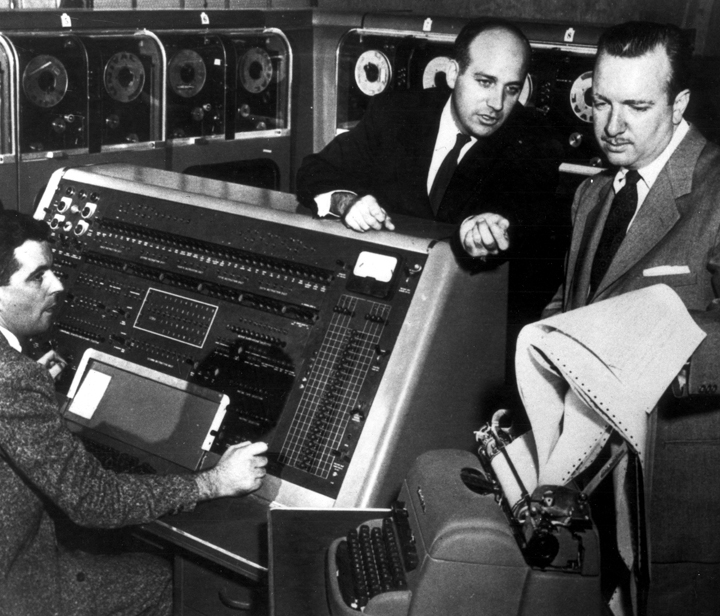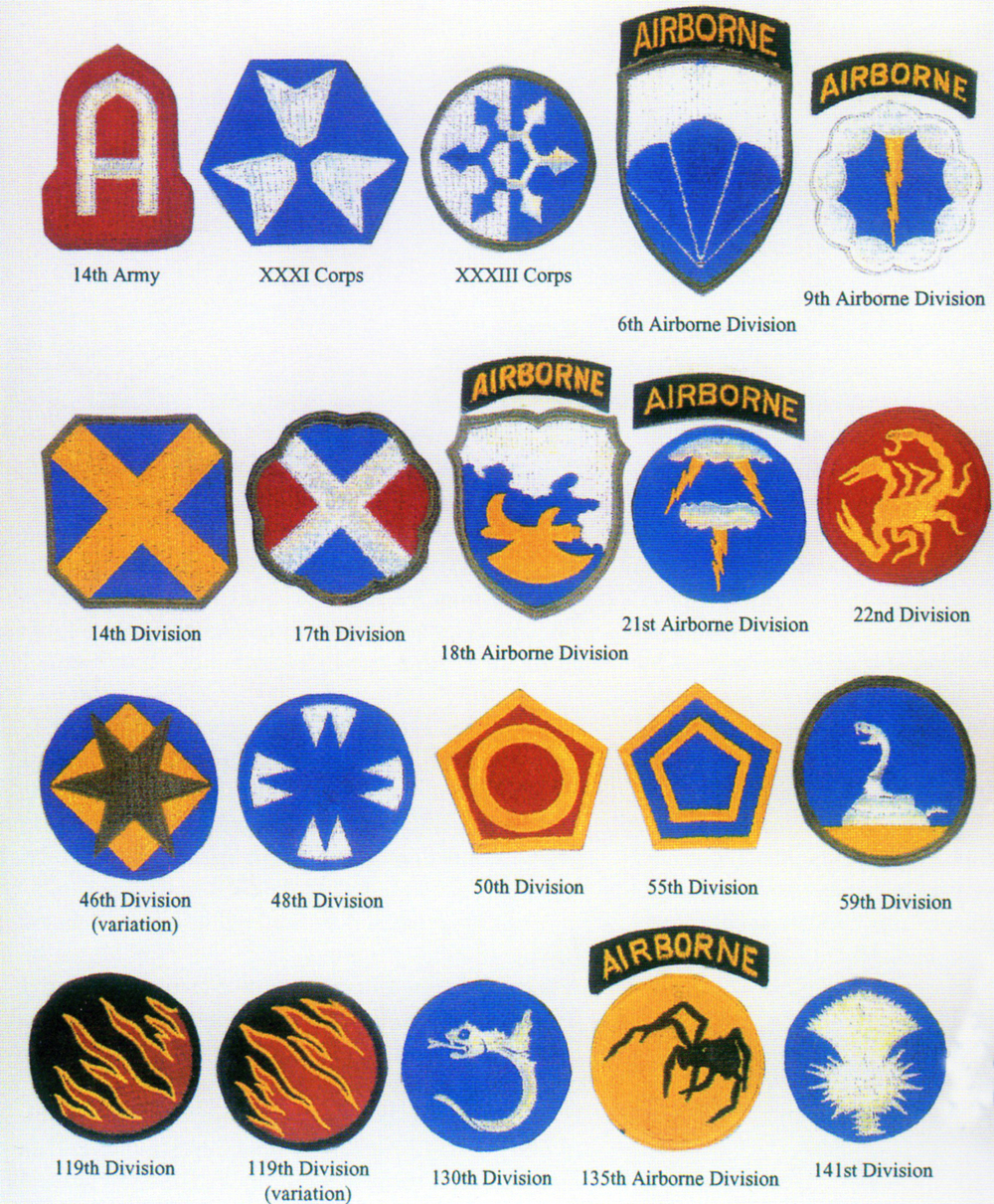|
Bob Trout
Robert Trout (born Robert Albert Blondheim; October 15, 1909 – November 14, 2000) was an American broadcast news reporter who worked on radio before and during World War II for CBS News.Bernstein, Adam. "CBS Radio Newsman Robert Trout, 91, Dies," ''The Washington Post'', Wednesday, November 15, 2000. Retrieved May 1, 2021. He was regarded by some as the "Iron Man of Radio" for his ability to while on the air, as well as for his stamina, composure, and elocution. Early broadcast career |
CBS Radio Network
CBS News Radio, formerly known as CBS Radio News and historically known as the CBS Radio Network, is a radio network that provides news to more than 1,000 radio stations throughout the United States. The network is owned by Paramount Global. It is the last of the three original national U.S. radio networks (CBS, NBC Radio Network and Mutual Broadcasting System) still operating and still owned by its original parent company, even though CBS sold its owned and operated radio stations in 2017. The current NBC Radio Network is owned by iHeartMedia, and licenses use of the NBC name and audio from NBC News. CBS News Radio is one of the two national news services distributed by Skyview Networks, which transmits national news, talk, music and special event programs, in addition to local news, weather, video news and other information to radio and television stations, as well as traffic reporting services. Background The network is the second-oldest unit of Paramount Global after Par ... [...More Info...] [...Related Items...] OR: [Wikipedia] [Google] [Baidu] |
David Brinkley
David McClure Brinkley (July 10, 1920 – June 11, 2003) was an American newscaster for NBC and ABC in a career lasting from 1943 to 1997. From 1956 through 1970, he co-anchored NBC's top-rated nightly news program, '' The Huntley–Brinkley Report,'' with Chet Huntley and thereafter appeared as co-anchor or commentator on its successor, ''NBC Nightly News,'' through the 1970s. In the 1980s and 1990s, Brinkley was host of the popular Sunday '' This Week with David Brinkley'' program and a top commentator on election-night coverage for ABC News. Over the course of his career, Brinkley received ten Emmy Awards, three George Foster Peabody Awards, and the Presidential Medal of Freedom. He wrote three books, including the 1988 bestseller ''Washington Goes to War'', about how World War II transformed the nation's capital. His books were largely based on his own observations as a young reporter in the city. Early life Brinkley was born in Wilmington, North Carolina, the younge ... [...More Info...] [...Related Items...] OR: [Wikipedia] [Google] [Baidu] |
Chet Huntley
Chester Robert Huntley (December 10, 1911 – March 20, 1974) was an American television newscaster, best known for co-anchoring NBC's evening news program, '' The Huntley–Brinkley Report,'' for 14 years beginning in 1956. Early life Huntley was born in Cardwell, Montana, the only son and eldest of four children born to Percy Adams Huntley and Blanche Wadine (née Tatham) Huntley. The family was of Scottish descent. His father was a telegraph operator for the Northern Pacific Railway, and young Chet was born in the Cardwell depot living quarters. Owing to the railroad's seniority system, wherein employees with longer tenure could "bump" newer employees, the family moved often. They lived in Cardwell, Saco, Willow Creek, Logan, Big Timber, Norris, Whitehall, and Three Forks while he was a child.Oyan, Katie (December 19, 1999). - "Chester R. 'Chet' Huntley". - '' Great Falls Tribune''. He graduated from Whitehall High School in Whitehall, and attended Montana Stat ... [...More Info...] [...Related Items...] OR: [Wikipedia] [Google] [Baidu] |
Walter Cronkite
Walter Leland Cronkite Jr. (November 4, 1916 – July 17, 2009) was an American broadcast journalist who served as anchorman for the ''CBS Evening News'' from 1962 to 1981. During the 1960s and 1970s, he was often cited as "the most trusted man in America" after being so named in an opinion poll. Cronkite received numerous honors including two Peabody Awards, a George Polk Award, an Emmy Award, and the Presidential Medal of Freedom. Cronkite reported many events from 1937 to 1981, including bombings in World War II; the Nuremberg trials; combat in the Vietnam War; the Dawson's Field hijackings; Watergate; the Iran Hostage Crisis; and the assassinations of President John F. Kennedy, civil rights pioneer Martin Luther King Jr., and Beatles musician John Lennon. He was also known for his extensive coverage of the American space program, from Project Mercury to the Moon landings to the Space Shuttle. He was the only non-NASA recipient of an Ambassador of Exploration aw ... [...More Info...] [...Related Items...] OR: [Wikipedia] [Google] [Baidu] |
WCBS-TV
WCBS-TV (channel 2), branded CBS New York, is a television station in New York City, serving as the flagship of the CBS network. It is owned and operated by the network's CBS News and Stations division alongside Riverhead, New York–licensed independent station WLNY-TV (channel 55). The two stations share studios within the CBS Broadcast Center on West 57th Street in Midtown Manhattan; WCBS-TV's transmitter is located at One World Trade Center. History Early years (1931–1951) WCBS-TV's history dates back to CBS' opening of experimental station W2XAB on July 21, 1931, using the mechanical television system that had been more-or-less perfected in the late 1920s. Its first broadcast featured New York Mayor Jimmy Walker, Kate Smith, and George Gershwin. The station had the first regular seven-day broadcasting schedule in American television, broadcasting 28 hours a week. Among its early programming were '' Harriet Lee'' (1931), '' The Television Ghost'' (1931–1933 ... [...More Info...] [...Related Items...] OR: [Wikipedia] [Google] [Baidu] |
New York City
New York, often called New York City (NYC), is the most populous city in the United States, located at the southern tip of New York State on one of the world's largest natural harbors. The city comprises five boroughs, each coextensive with a respective county. The city is the geographical and demographic center of both the Northeast megalopolis and the New York metropolitan area, the largest metropolitan area in the United States by both population and urban area. New York is a global center of finance and commerce, culture, technology, entertainment and media, academics, and scientific output, the arts and fashion, and, as home to the headquarters of the United Nations, international diplomacy. With an estimated population in 2024 of 8,478,072 distributed over , the city is the most densely populated major city in the United States. New York City has more than double the population of Los Angeles, the nation's second-most populous city. [...More Info...] [...Related Items...] OR: [Wikipedia] [Google] [Baidu] |
Who Said That?
''Who Said That?'' is a 1948–55 NBC game show that ran on radio and television, in which a panel of celebrities attempted to determine the speaker of a quotation from recent news reports. Radio Robert Trout was the moderator when the radio version began on July 2, 1948. Panelists included H. V. Kaltenborn, Robert Ruark, Leland Stowe, and John Swayze. Peter Roberts was the announcer. Production Don Gillis was the director, with Fred and Dorothy Friendly as editors. The program was broadcast at 8:30 p.m. on Fridays, and it was sustaining. NBC planned to cancel the program in the fall of 1948, but it was continued "at the instance of the network's affiliates". The continuation was accompanied by a scheduling change as the show was moved to noon Eastern Time on Sundays. Critical response The trade publication ''Variety'' called the 1948 radio version "a refreshing departure from run-of-the-mill entertainment". It commended Trout's work as moderator, saying his ... [...More Info...] [...Related Items...] OR: [Wikipedia] [Google] [Baidu] |
Game Show
A game show (or gameshow) is a genre of broadcast viewing entertainment where contestants compete in a game for rewards. The shows are typically directed by a game show host, host, who explains the rules of the program as well as commentating and narrating where necessary. The history of the game shows dates back to the late 1930s when both radio and television game shows were broadcast. The genre became popular in the United States in the 1950s, becoming a regular feature of daytime television. On most game shows, contestants Quiz, answer questions or solve puzzles, and win prizes such as cash, trips and goods and services. History 1930s–1950s Game shows began to appear on radio and television in the late 1930s. The first television game show, ''Spelling Bee (game show), Spelling Bee'', as well as the first radio game show, ''Information Please'', were both broadcast in 1938; the first major success in the game show genre was ''Dr. I.Q.'', a radio quiz show that began in ... [...More Info...] [...Related Items...] OR: [Wikipedia] [Google] [Baidu] |
Campbell Soup Company
The Campbell's Company (doing business as Campbell's and formerly known as the Campbell Soup Company) is an American company, most closely associated with its flagship canned soup products. The classic red-and-white can design used by many Campbell's branded products has become an American icon, and its use in pop art was typified by American artist Andy Warhol's series of ''Campbell's Soup Cans'' prints. Campbell's has grown to become one of the largest processed food companies in the United States through mergers and acquisitions, with a wide variety of products under its flagship Campbell's brand as well as other brands including Pepperidge Farm, Snyder's of Hanover, V8 (beverage), V8, and Swanson. With its namesake brand Campbell's produces soups and other canned foods, baked goods, beverages, and snacks. It is headquartered in Camden, New Jersey. History Foundation and early history The company was started in 1869 by Joseph A. Campbell, a fruit merchant from Bridgeton, ... [...More Info...] [...Related Items...] OR: [Wikipedia] [Google] [Baidu] |
Newspapers
A newspaper is a Periodical literature, periodical publication containing written News, information about current events and is often typed in black ink with a white or gray background. Newspapers can cover a wide variety of fields such as politics, business, sports, art, and science. They often include materials such as opinion columns, weather forecasts, reviews of local services, Obituary, obituaries, birth notices, crosswords, editorial cartoons, comic strips, and advice columns. Most newspapers are businesses, and they pay their expenses with a mixture of Subscription business model, subscription revenue, Newsagent's shop, newsstand sales, and advertising revenue. The journalism organizations that publish newspapers are themselves often Metonymy, metonymically called newspapers. Newspapers have traditionally been published Printing, in print (usually on cheap, low-grade paper called newsprint). However, today most newspapers are also Electronic publishing, published on webs ... [...More Info...] [...Related Items...] OR: [Wikipedia] [Google] [Baidu] |
D-Day
The Normandy landings were the landing operations and associated airborne operations on 6 June 1944 of the Allied invasion of Normandy in Operation Overlord during the Second World War. Codenamed Operation Neptune and often referred to as D-Day (after the military term), it is the largest seaborne invasion in history. The operation began the liberation of France, and the rest of Western Europe, and laid the foundations of the Allied victory on the Western Front. Planning for the operation began in 1943. In the months leading up to the invasion, the Allies conducted a substantial military deception, codenamed Operation Bodyguard, to mislead the Germans as to the date and location of the main Allied landings. The weather on the day selected for D-Day was not ideal, and the operation had to be delayed 24 hours; a further postponement would have meant a delay of at least two weeks, as the planners had requirements for the phase of the moon, the tides, and time of day, that ... [...More Info...] [...Related Items...] OR: [Wikipedia] [Google] [Baidu] |






